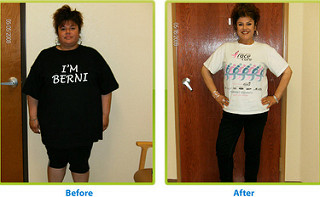Emphasizing Health vs. Weight for Body-Positive Thinking
If meal time discussions center on weight management, it's time to drop negative talk in favor of something more positive. Focusing on weight often backfires, leading both young children and teens to feelings of guilt, insecurities about their bodies, sneaking food and disordered eating, explains Kristi King, MPH, RDN, CNSC, LD, spokesperson for the Academy of Nutrition and Dietetics.
Instead, it's more effective to talk about the taste and healthfulness of foods, says Angie Hasemann, RD, CSP, weight management dietitian at the University of Virginia Children's Hospital. A healthy diet and lifestyle affects mood, energy levels, athletic performance and school performance – and reduces the risk of illness. Talking about these positive things is more fun too, she adds.
Here are a few ways to help your kids develop body-positive attitudes and healthful behaviors.
Teach What Healthy Eating Is and Isn't
Obsessing about calories, carbs, fats or any nutrient is not healthy eating. It makes meals stressful and unpleasant, the opposite of what every kid and adult deserve. Teaching that a healthful dinner has half of the plate full of fruits and vegetables and is eaten at a dinner table each night sets your children up for a healthy future, Hasemann explains. Offering a variety of foods at regular meal and snack times is another positive step.
Make Food Fun
Get kids of all ages into the kitchen. From washing apples to slicing veggies and stirring hot pots, there are food preparation and cooking chores suitable for every child. For fun, have "Try it Tuesdays," suggests King, in which every Tuesday your children get to choose a new food. Or have theme nights such as Meatless Mondays or a trip around the globe. Get little kids excited by giving foods fun names, such as green monster juice and ants on a log.
Be a Role Model
If your eating habits are not the ones you want your children to copy, now is a great time to make some improvements, suggests King. Model a healthy attitude about your body image, too. If you always complain about your weight or call certain foods bad foods, your children will learn to do the same. If you follow fad diets, they'll learn that restrictive eating is more important than balanced, healthful eating.
Put Weight into Perspective
You cannot get a full story by looking at weight or a single number on a growth chart, Hasemann says. Remember that children's bodies change quite a bit as they grow. "Behavior speaks louder than appearance," she adds. "Tell me if the child is eating three meals per day, drinking plenty of water and getting the fruits and veggies the body craves. Tell me if the child is active and moves to the point of sweating daily. Those are much better markers of health than a single number on a scale or a point on a chart."
Take Your Concerns to a Professional
If you're concerned about your child' weight, diet or attitude about his or her body, talk with your child's healthcare provider. Also schedule an appointment with a registered dietitian nutritionist who will assess your family's diet and help you make appropriate changes that will meet the needs of all family members.
-
Weight Loss Doesnt Have To Be Hard
There are several ways in which people choose to lose weight; however
-
A Pyramid Routine To Blow The Lid Off Of Plateaus
A common problem among many people looking to shed fat and lean out is
-
Witness The Gains Of Natural Weight Loss
For decades, one after the other new substanceswere introduced to the
-
Fat Loss By Incorporating Great Strategies
Weight loss is not to be taken lightly.
-
Ease You Pain! What To Do About Hemorrhoids.
There are a number of ways you can ease the pain of hemorrhoids,
-
What Laid Emphasis On Miami Weight Loss?
You might have heard about the weight loss Miami but many people stil
- DON'T MISS
- Fitness and Sleep: How Losing Weight Help Sleep Problems
- Dieting - Losing The Few Vanity Pounds
- Have you ever heard of the African Mango?
- Weight Gain and How to Overcome It
- Weight loss Tips For Powerful Living
- 8 Steps to Make Your Weight Loss Program Successful
- Rooibos Tea – Caffeine Free Tea to Aid Your Weight Loss Plan
- 71 Tips To Lose Weight Fast
- Ulcerative colitis update 2016: Diverticulitis, blood in stool, Crohn’s disease, and weight loss
- Open Your Mind; Not Your Wallet For Weight Loss And Fat Burning




